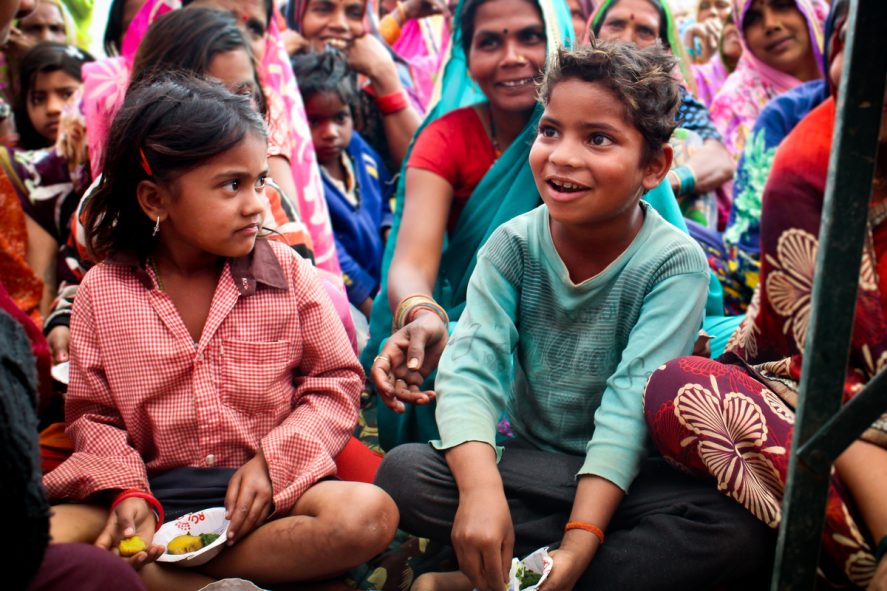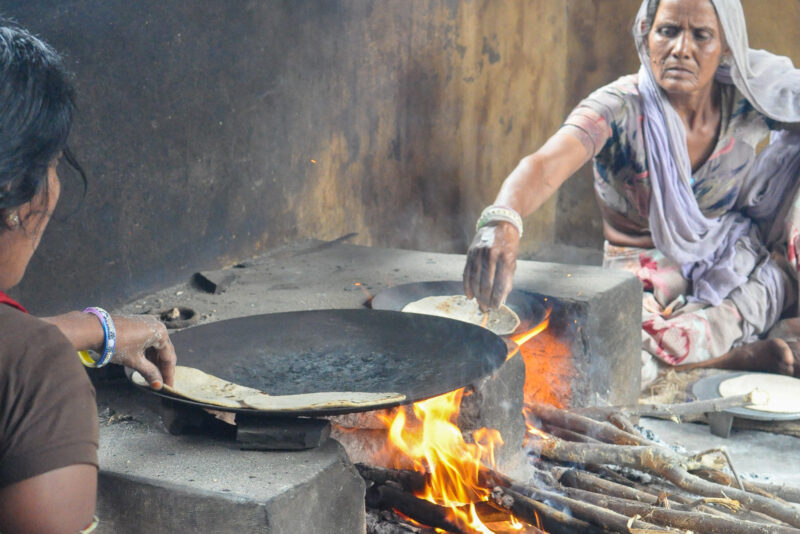2020-21 Annual Report: Curbing Vitamin A Deficiency through Biofortification

This article originally appeared in TCI’s 2020-21 Annual Report. Download the report (PDF) to read more.
Orange-fleshed sweet potato has shown great promise toward reducing vitamin A insufficiency in the diet when introduced to rural communities in developing regions, as an easy-to-cultivate crop and a tasty, affordable, healthy food. Although it has been successfully introduced in East Africa, where white-fleshed varieties of sweet potato are regularly consumed, Indian consumers have little to no experience with the tubers.
From 2017 to 2019, TCI alumna Kathryn Merckel conducted a randomized controlled trial in North India—where vitamin A deficiency is a well-documented public health concern—to determine if agricultural promotion alone of orange-fleshed sweet potatoes is sufficient to build knowledge of and demand for them, or if nutritional education is required as well.
Merckel’s research reveals that the promotion of [orange-fleshed] sweet potatoes, both with and without integrated nutrition messaging, holds promise for improving the diets of North Indian rural communities.
Merckel’s research reveals that the promotion of sweet potatoes, both with and without integrated nutrition messaging, holds promise for improving the diets of North Indian rural communities. Relative to control villages, all intervention villages in the study were observed to have significantly increased knowledge about vitamin A, orange-fleshed sweet potato, and proper infant and young child feeding practices. These increases led to a significant and meaningful increase in demand for the sweet potatoes, with 85 percent of households in intervention villages reporting that they would buy them if they were available in their market.
Despite this market opportunity, farmers faced serious agricultural constraints, especially the availability of land and pressure from pests.
These findings reveal a tremendous opportunity to introduce orange-fleshed sweet potatoes in the South Asian context. Investment in agricultural markets—particularly, access to appropriate inputs and solutions to land constraints—can facilitate meeting the high demand for sweet potatoes, especially vitamin-A-rich orange-fleshed varieties. Continued work to build consumer demand for such micronutrient-rich crops through nutrient-sensitive agriculture interventions is pivotal to ensuring food systems are enabling healthy diets for all.





